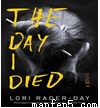THE WEEK IN READING: THE BEST NEW BOOK RELEASES FOR APRIL, 2017
Void Star by Zachary Mason
Farrar, Straus and Giroux, 400 pages Zachary Mason creates a world in which the line between human and computer is completely erased, yet he still manages to make the reader feel for all the characters—both man and machine—equally. Add that to a highly addictive plot and an exploration of memory’s impact on our identity, and you’ve got one of the most richly complex novels of the year. |
An American Sickness: How Healthcare Became Big Business and How You Can Take It Back by Elisabeth Rosenthal
Penguin Press, 416 pages It’s not uncommon to come across a complete takedown of the American healthcare system as it stands today. But what is uncommon is what Elisabeth Rosenthal has done in this must-read exploration of what we are (and aren’t) doing right: She has the answers we’ve all been searching for in a potential post-Obamacare world. An American Sickness is the frontline defense against a healthcare system that no longer has our well-being at heart. |
A History of Violence: Living and Dying in Central America by ?scar Martínez Verso, 288 pages
El Salvador and Honduras have had the highest homicide rates in the world over the past ten years, with Guatemala close behind. Every day more than 1,000 people—men, women, and children—flee these three countries for North America. Step outside yourself for a couple hours and immerse yourself in one of the most incredibly vivid, well-reported journeys through Central America that you will ever experience. |
Sunshine State by Sarah Gerard Harper Perennial, 384 pages
Sarah Gerard deftly takes the reader through the most essential issues of our time—homelessness, addiction, incarceration—via a coming-of-age lens in the state of Florida, where, as we all know, anything goes. |
The Day I Died by Lori Rader-Day William Morrow Paperbacks, 432 pages
An incredibly complex and smart novel, The Day I Died contains all the features of a small-town murder mystery but takes it one step further with a narrative about a woman’s unbreakable search for the answers to not just a crime but about her own identity. |
1.If you want to know about social problems in the US, you will probably choose _______.
A. Void Star B. A History of Violence
C. The Day I Died D. Sunshine State
2.Which statement is NOT true according to these books?
A. Void Star is a science fiction with a highly addictive plot.
B. The American healthcare system is favored by all Americans.
C. A History of Violence perhaps involves violence problems.
D. The Day I Died is a novel not only about a murder mystery.
Dear Amy, My in-laws are all the products of failed marriages, so there are blood relatives and step relatives to deal with on both sides of the aisle. For years, my in-laws have told my children that my wife’s stepmother’s grandchildren are their cousins. This alone is not true, since these kids are only involved in our lives due to marriage. I just keep talking to my kids and explaining to them the way the family tree works and that these kids are not their cousins. At one point, my oldest son got mad and told one of these kids that he was not his real cousin, and then my in-laws confronted my son about what he said. They were apparently upset about it. Amy, I am not going to create a world that does not exist. They are stuck on taking in these kids that have zero actual blood relation to them at all. I stand my ground on this, and my wife just thinks that I am being an ass. Your thoughts? Disturbed Dad |
Disturbed Dad, Before you spend the rest of your life carefully studying a family tree at every potluck dinner, remember that “family” isn’t some exclusive club that you get to join by having two or more of the same biological relatives. People in highly functioning and inclusive families will tell you that all you have to do to be a part of any family is to be considered part of the family. This means being included, regardless of your biological status, and reveling in relationships that are auntlike, grandparent-like or cousinlike. It is wise to explain truthfully all of these many and varied relationships to your children, but to use loaded terms like “real family” only underlines your emotional ignorance about relationships. Your in-laws are doing a wonderful thing accepting these children, so put down the genealogy chart and apologize. After all, if we follow your logic, then your in-laws shouldn’t be accepting you as family either; you aren’t related to them by blood, so you aren’t their “real family.” The good news is, if you continue to treat your wife’s family this way, you won’t have to worry about keeping the blood relatives and the step-relatives in this family straight — given your lack of good manners, these family members might disregard you in favor of someone who is more open, accepting and inclusive. Amy |
1.The Disturbed Dad’s in-laws were upset because _______.
A. they all had failed marriages B. they knew of the Dad’s thoughts
C. one of the grandsons got mad D. some kids had no blood relation
2.What’s Amy’s attitude towards the Disturbed Dad’s opinion?
A. Objective. B. Negative.
C. Doubtful. D. Cautious.
3.Amy may agree that _______.
A. the Dad shouldn’t be narrow-minded about the family tree
B. it’s necessary to consider biological relationships in a family
C. the Dad shouldn’t be accepted as family by their in-laws
D. it’s good news for the family members to disregard the Dad
Music is a Universal Language
“Music is the universal language of mankind.” – Henry Longfellow
Everyone has the inborn ability to understand and enjoy music. There are many theories as to why this is, but it has become a part of human beings. Since the beginning, humans have expressed themselves through music. Simple tribal rhythms evolved into many types of more complex music, including classical, rock, jazz, and R&B. While the styles between these many types of music may vary, everyone is able to understand and relate to them.
What are the essential parts of a language? Every language uses vocabulary, or a set of words, to create sentences that convey messages. The tone and style of the sentences convey different feelings or emotions. Music is exactly the same way. Twelve tones, or notes, are combined to create phrases that also convey emotion. Music can even be written, like most other languages. Conversations even take place in music. Two saxophonists can play melodies back and forth, expressing different styles and feelings, building off of each other, responding to each other. Music changes over the years like other languages. Most people who speak fluent English cannot read one of Shakespeare’s plays because the language has changed so much. Music is also affected by time, and over a long period, many new types of music and instruments have emerged to create different sounds and convey different messages. There are so many similarities between vocal language and music that they must be same.
I recently had a chance to experience conversation through music. In 2008, I traveled to Manila, Philippines to participate in a high school jazz exchange where many students from all over Asia came together to share their talents. Everyone was mixed into different small groups to prepare for a concert at the end of week. Few people spoke fluent English so vocal communication was very tough. However, it wasn’t needed. Everyone seemed to understand each other simply through the music and there were few times where direct translation was needed. At the performance, every group played for a live audience. They all sounded phenomenal and it felt like they were in perfect time and harmony. During my group’s performance, I was able to improvise with a Korean boy who spoke very little English. But we managed to have a conversation through our instruments, building off each other’s riffs until we were creating our own melody on the fly. It was a great experience.
Because of the many similarities that music shares with other languages, it is a very effective way to communicate with others. Music brings us together, connects us with other people, and allows us to express ourselves in ways that are different from speech and writing. It has the ability to convey emotions and messages to the core of people, which is why Henry Longfellow is absolutely correct when he states that “music is the universal language of mankind.”
Music is a Universal Language
Introduction | ● Human beings have the ability to appreciate music since they were 1.. ● Despite the different types2. from simple tribal rhythms, everyone is able to understand music. |
3. between language and music | ● The tone and style of the sentences convey different feelings or emotions, 4. does music. ● Like most other languages, music even has its 5. forms. ● Both language and music have gone 6. many changes over the years. ● Conversations even take place in music. ● Time also has a great 7. on music. New forms of music and instruments come up to convey different messages. |
My chance of 8. conversation through music | I participated in a high school jazz exchange in Philippines in 2008, where students came from all over Asia. While there were language 9. between us, we still managed to communicate well by music. |
Conclusion | Music is a very effective way to communicate with others. Just as Henry Longfellow 10. it, “music is the universal language of mankind.” |




